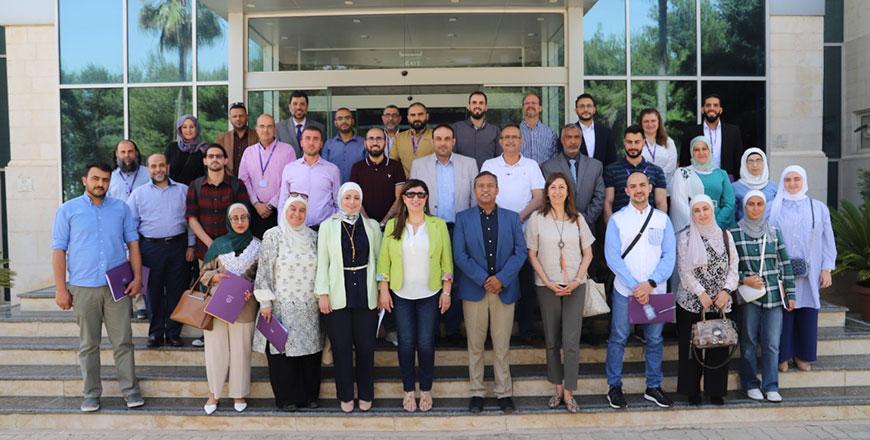You are here
RSS, UNIDO implement project to develop growth opportunities for industry
By JT - Sep 11,2019 - Last updated at Sep 11,2019
AMMAN — The Royal Scientific Society (RSS) has launched the second phase of the EU-funded project "Transfer of Environmentally Sound Technology" (TEST) in cooperation with the United Nations Industrial Development Organisation (UNIDO) to develop new growth opportunities for Jordanian industry.
The project aims at implementing the principles of resource efficient and cleaner production (RECP) in additional industrial sectors, companies and service providers in Jordan, according to an RSS statement.
During the launch ceremony, which was attended by representatives of the UNIDO, the EU Delegation in Jordan, the relevant ministries and national institutions and chambers of industry, Rafat Assi, vice president for consultations and studies at the RSS, stressed the need to execute RECP assessment projects in the industrial sector to enhance the competency of the national industries through optimising productivity and reducing the waste of raw materials, water and energy.
Assi said that such projects will assist the green growth of the country and mitigate the challenges faced in water scarcity and energy supply and support the ultimate goal of the RSS in promoting the sustainable development of the Kingdom through addressing relevant global challenges, according to the statement.
Assi added that enhancing productivity by integrating practices and technology that lead to greater efficiency in the use of natural resources, a reduction of waste and energy consumption and opportunities for innovation and value creation, is central to UNIDO’s TEST approach.
Assi also pointed out that the RSS will implement the second phase of the project in partnership with chambers of industry and in cooperation with UNIDO and national focal points from the Ministry of Industry, Trade and Supply and the Ministry of Environment to move forward in implementing the principles of RECP in Jordan, the statement said.
Assi noted that the implementation of the first phase of the project over three years identified a potential annual savings of over JD1.6 million that resulted in 22,181 MWh/year in energy savings; 63,844 m3/year of water savings; 404 tonnes of raw material savings, and 83 tonness of landfilled solid waste avoided for the 12 participating companies in the food and beverage sector.
Roberta de Palma, UNIDO’s chief technical advisor, said that the TEST methodology offers industrial companies an integrated approach that combines RECP tools, Environmental Management System and material flow cost accounting to achieve a more sustainable production, a better environmental performance for the businesses, while also saving money and allowing businesses to invest and grow sustainably.
Sulafa Mdanat, UNIDO’s representative in Jordan, explained that the project is fully in line with both Jordan’s national priorities and the sustainable development goal number 9, which focuses on inclusive and sustainable industrialisation and fosters innovation.
Basel Alnobani, from the Ministry of Industry, Trade and Supply said that the TEST methodology addresses the challenges and barriers industries are facing in becoming more resource and energy efficient, and less polluting.
He also noted that the methodology also increases the productivity and competitiveness of the industrial sector in Jordan with a higher chance of access to international markets with good quality products and compliance with environmental standards.
Related Articles
AMMAN — The progress of implementing the second phase of the EU-funded SwitchMed/MED Transfer of Environmentally Sound Technology (TEST) III
AMMAN — Twelve plants in the food and beverage sector helped save over JD1.6 million in costs related to water, energy, raw materials and so
AMMAN — Experts representing local ministries, international organisations and academic institutions have called for the application of circ












